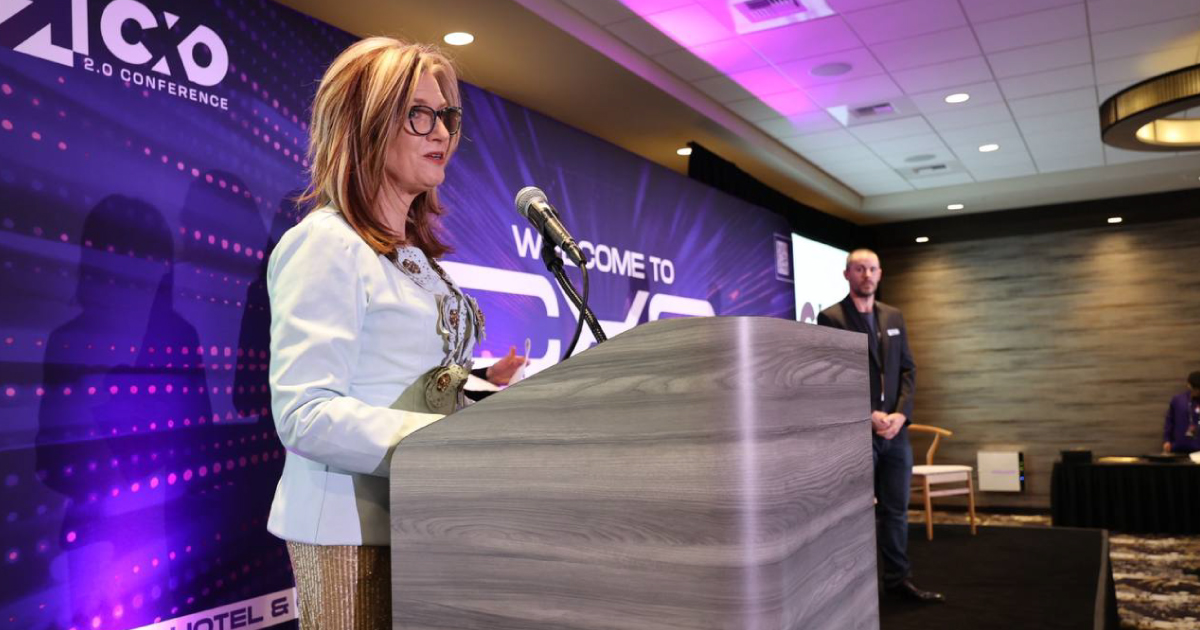In today's professional landscape, the journey toward career advancement is rather exhilarating. Self-development is often overlooked as a factor in career and business success. However, to create awareness about its importance, business leadership conferences like CXO 2.0 Conference highlight its concept in the present day.
Let’s go through the insights from experts and understand the role of self-development in career advancement, its impact, and how you can develop to be a better leader.
Importance Of Self-Development
Continuous Growth
The modern job landscape is a dynamic arena. Stagnant skills can quickly become ineffective. Self-development awakens a natural eagerness to learn. This eagerness helps professionals learn new skills, gain knowledge, and see things from different angles on a regular basis. This continuous learning ensures that people can adjust and stay important even when industries change over time.
Boosting Your Confidence
When you work on improving yourself, you also boost your self-confidence. As you learn new things and gain new skills, you start feeling more sure of yourself. This increased confidence gives you the courage to handle challenges calmly and grab opportunities with excitement. This newfound self-esteem shines through in everything you do in your job.
Improving Your Problem-Solving Abilities
Self-development isn't just about doing your job better; it's also about thinking smarter. When you focus on self-improvement, you become better at thinking critically and solving problems. Having a variety of skills allows you to look at challenges from different angles. This helps you come up with new and creative solutions, giving you an advantage over others.
Becoming More Resilient
As you embark on your journey of self-improvement, you also build resilience. Resilience means being strong in the face of difficulties. When you're open to learning and growing, you're better equipped to handle failures and setbacks. Over time, this mental strength becomes a valuable tool, especially in a career where things can change unexpectedly.
Finding Personal Fulfillment
Self-improvement isn't just about your job; it's also about how you feel inside. When you strive to become a better version of yourself, you find personal satisfaction. This feeling goes beyond the workplace and brings happiness to your whole life. It helps you achieve a better balance between your work and personal life, leading to overall well-being.
How Does Self-Development Impact Career Success?

There are many in-person leadership conferences that invite experts to share their views on career advancement. They often discuss the direct impact of self-development on one’s career. Below are some key points that experts have shared.
Skill Relevance
The corporate industry is fast-paced and skills required to succeed evolve rapidly. Self-development ensures professionals remain aligned with industry demands. Staying relevant with up-to-date skills improves chances of employability and accelerates career progression.
Networking
When you focus on self-improvement, you might attend workshops, seminars, and conferences. These are like places to make friends in your field. You can meet people who are similar to you, potential partners to work with, and people who can guide you. Sometimes, these connections can even lead to unexpected job chances.
Leadership Development
Self-development isn't just about you—it also helps you become a better leader. Good leaders inspire their teams and come up with new ideas. They play a big part in the success of a company. When you work on becoming a good leader, you might get opportunities for bigger responsibilities, like managing a team.
Adaptability
Self-improvement helps you become more adaptable. This means you can easily learn and use new things like technologies and ways of doing things. People who are good at this stand out because they can do well even when things change a lot.
When you focus on self-development, you start thinking more about yourself. You figure out what you're good at, where you're not so strong, and what you care about. This helps you make better choices about your career. You know what you want to do and where you want to go, which makes your career path clearer and more meaningful.
Challenges In Career Advancement
Below are some common barriers one might face as they advance their career:
Skill Gap
Rapid industry transformations often lead to skill disparities among professionals. Failure to bridge these gaps inhibits career progression and restricts opportunities.
Stagnation
Neglecting self-development can lead to stagnation. Without acquiring new skills or broadening one's knowledge, professionals risk becoming complacent, limiting their upward mobility.
Competition
The job market's competitiveness necessitates a unique edge. Professionals who prioritize self-development distinguish themselves, showcasing adaptability, skills, and growth potential.
Lack of Direction
Identifying areas for development can be challenging. Without a clear path, individuals may feel overwhelmed or directionless, delaying their advancement efforts.
Time Constraints
Balancing work, personal commitments, and self-improvement is a struggle. Busy schedules often deter professionals from dedicating time to self-development pursuits.
How Can Self-Development Overcome These Challenges?
CXO 2.0 Conference shares legit strategies to overcome career advancement challenges. Some of these are listed below.
Skill Audits
Regularly evaluate your skills against industry trends to identify gaps. Craft a tailored plan to bridge these gaps.
Goal Setting
Set SMART (Specific, Measurable, Achievable, Relevant, Time-bound) goals for self-development. This roadmap guides focused growth.
Time Management
Allocate dedicated time for learning. Even small, consistent efforts accumulate over time, enhancing skills substantially.
Utilize Resources
Leverage online courses, webinars, podcasts, and mentorship programs. These resources provide structured learning opportunities.
Get Feedback
Seek constructive feedback from supervisors, peers, and mentors. It offers insights into areas needing improvement and tracks progress effectively.
How Can Business Professionals Practice Self-Development?
Business leadership conferences have shared some effective tips to follow for practicing self-development in your career. These include the following:
Read Widely
Stay informed by reading diverse materials. Industry news, blogs, and thought leadership pieces expand knowledge and perspectives.
Online Courses
Online platforms offer a plethora of courses covering various subjects. These flexible options enable skill enhancement at your own pace.
Set Learning Goals
Define specific skills or knowledge areas to develop within a given timeframe. Break these goals into actionable steps.
Soft Skills Development
Alongside technical skills, prioritize soft skills like communication, emotional intelligence, and teamwork. These traits complement technical proficiency.
Networking Events
Attend industry conferences, workshops, and webinars. Engaging with experts and peers fosters knowledge exchange and opens doors to collaborations.
One of the sure-shot ways of practicing self-development is attending in-person leadership conferences, like CXO 2.0 Conference. Such events share immense knowledge about modern business trends like the art of customer service, the impact of emotional intelligence on leadership, and more important topics.
Conclusion
Remember, self-development means always wanting to learn and getting better at things. Facing challenges, having clear goals, and using what's available to improve can help professionals do really well in their careers. Don’t forget to stay connected with renowned leadership events in the USA to gain a competitive edge in your career!













